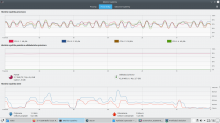Hello,
I installed Ubuntu and then I installed KDE plasma.
Baloo use too big part of RAM and use too big power of possessor.
Can you please repair?
Baloo very reduce performance of me PC.
Can you me help, please?
I must very offen kill Baloo, I have issue with work on PC.
I have installed actual version of Ubuntu and KDE plasma



